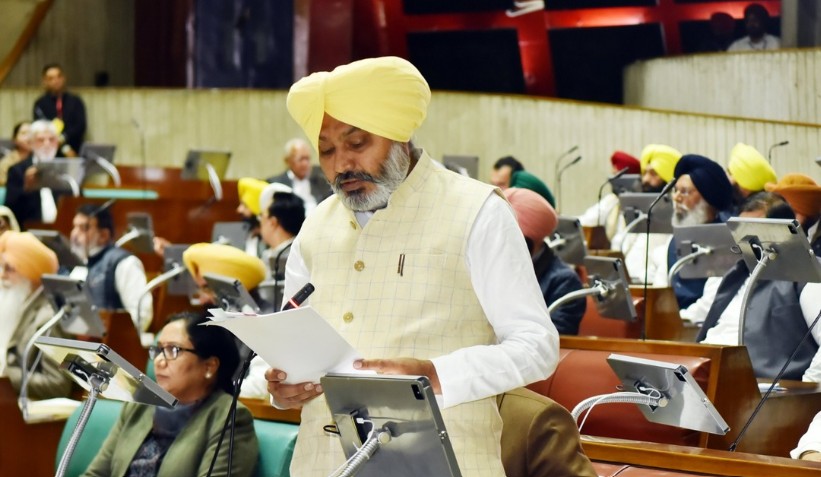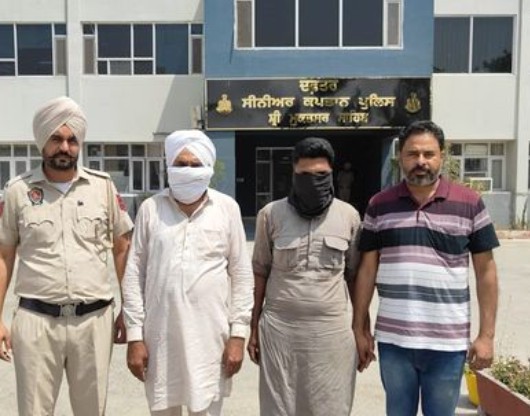In a significant move signaling a fresh approach to legal affairs in Punjab, the state government has announced the appointment of 124 law officers. This decision comes in the wake of a major reshuffle in the office of the Advocate General (AG), marking a renewed effort to strengthen the state’s legal representation and enhance efficiency in handling ongoing and future litigation.
The decision was taken following the recent resignation of Advocate General Gurminder Singh, which triggered a restructuring of the state’s top legal office. Maninderjit Singh Bedi has since been appointed as the new Advocate General of Punjab. This transition is seen not just as a routine administrative reshuffle, but rather as a strategic move by the Aam Aadmi Party (AAP)-led state government to infuse new energy into the state’s legal machinery.
According to sources in the Punjab government, the recruitment of 124 law officers is aimed at streamlining the representation of the state government in various courts, including the Punjab and Haryana High Court, district courts, and tribunals. These appointments are expected to bring in a more robust and responsive legal system that can handle complex cases with greater clarity and commitment.
Officials have indicated that the law officers will include advocates for both civil and criminal matters, as well as those specializing in service, revenue, taxation, and public interest litigation. The selection process was reportedly carried out in a transparent manner, giving priority to merit, experience, and subject-matter expertise. The new appointees are said to be a blend of seasoned legal practitioners and dynamic young lawyers who have demonstrated exceptional skill in courtrooms.

One of the key priorities of the Punjab government in revamping the AG office is to reduce the backlog of pending government cases and ensure timely responses to court directions. It has been observed over the years that delayed responses from government departments often lead to adverse judgments, which in turn result in financial and administrative burdens on the exchequer. By expanding the pool of law officers, the government aims to minimize such delays and improve its legal defense and prosecution capabilities.
The government’s legal wing has also been under scrutiny for lacking adequate coordination among various departments, often leading to inconsistent submissions before courts. With the new appointments, the AG’s office plans to introduce a more structured system of briefings, updates, and centralized case monitoring. This will be complemented by digitizing case records and ensuring real-time access to case files for the law officers, especially in high-stakes litigation involving constitutional matters or large-scale public policy implications.
The timing of this reshuffle is notable, coming ahead of a slew of major legal battles the Punjab government is expected to fight in the coming months. These include disputes over river waters, implementation of central laws within the state’s jurisdiction, inter-state issues with neighboring Haryana and Himachal Pradesh, as well as land acquisition and farmer compensation cases. Strengthening the legal wing is seen as critical in defending Punjab’s stance effectively in these matters.
While the reshuffle and appointments have been welcomed by several quarters, some opposition leaders have raised questions about the scale and timing of the changes. Former advocates general and political analysts have warned against over-politicization of the AG’s office, which they argue must function independently and impartially. They also emphasized the need for continuity and institutional memory, cautioning against frequent turnover that may disrupt ongoing legal strategies.
In response, a senior official from the Chief Minister’s Office asserted that the appointments are part of a larger legal reforms package being introduced in the state. The official noted that the new law officers have been chosen with strict adherence to professional standards, and not based on political affiliations. “The aim is to restore credibility and ensure effective legal support to the government’s development agenda,” the official said.
Maninderjit Singh Bedi, the newly appointed Advocate General, is expected to play a central role in guiding the state’s legal policy. With decades of experience in constitutional and administrative law, Bedi has previously served as senior standing counsel for the government in several high-profile cases. Legal experts believe that his appointment sends a strong signal about the government’s intent to reinforce institutional integrity within the AG’s office.
As part of his initial strategy, Bedi is expected to conduct a comprehensive review of all ongoing litigation involving the state government. This review will help categorize cases based on urgency, importance, and impact on public interest. Each category will then be assigned to law officers with the appropriate expertise, ensuring optimal use of human resources. In addition, regular review meetings will be held to assess progress and strategize responses in critical matters.
The Punjab government is also planning to enhance training and professional development opportunities for the newly appointed law officers. Plans are underway to organize workshops and seminars on legal drafting, courtroom etiquette, digital tools for legal research, and evolving jurisprudence. By investing in capacity building, the state hopes to equip its legal team to match the best in the country.
The engagement of 124 law officers is expected to have financial implications, but officials insist that the investment is justified by the potential savings in avoiding legal setbacks and penalties. Moreover, it aligns with the government’s broader commitment to administrative reforms and responsive governance.
Public interest groups and legal commentators have largely welcomed the move. They point out that a well-staffed and competent AG office can make a significant difference in how efficiently public grievances are addressed in courts, especially in cases involving the poor and marginalized. They also argue that such measures can reduce dependency on costly external counsel, leading to long-term fiscal discipline.
In conclusion, the Punjab government’s decision to appoint 124 new law officers following a major reshuffle in the AG office marks a bold and proactive step toward revamping the state’s legal apparatus. It reflects a commitment to professionalizing legal services, ensuring effective representation in courts, and aligning legal processes with the principles of transparency and accountability. As the new team takes charge under the stewardship of Advocate General Maninderjit Singh Bedi, it remains to be seen how these changes will reshape the state’s legal landscape and influence the delivery of justice in Punjab.


